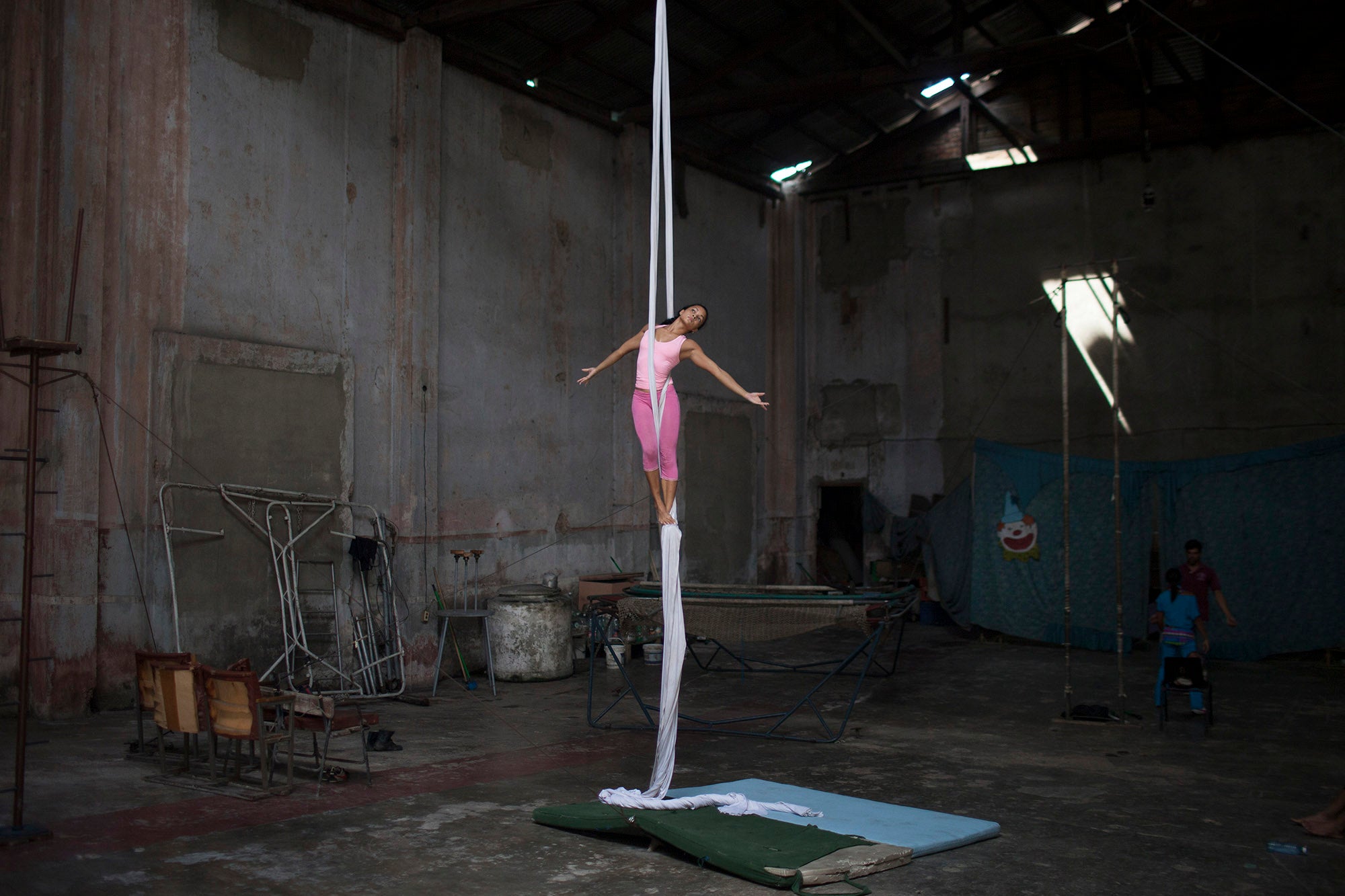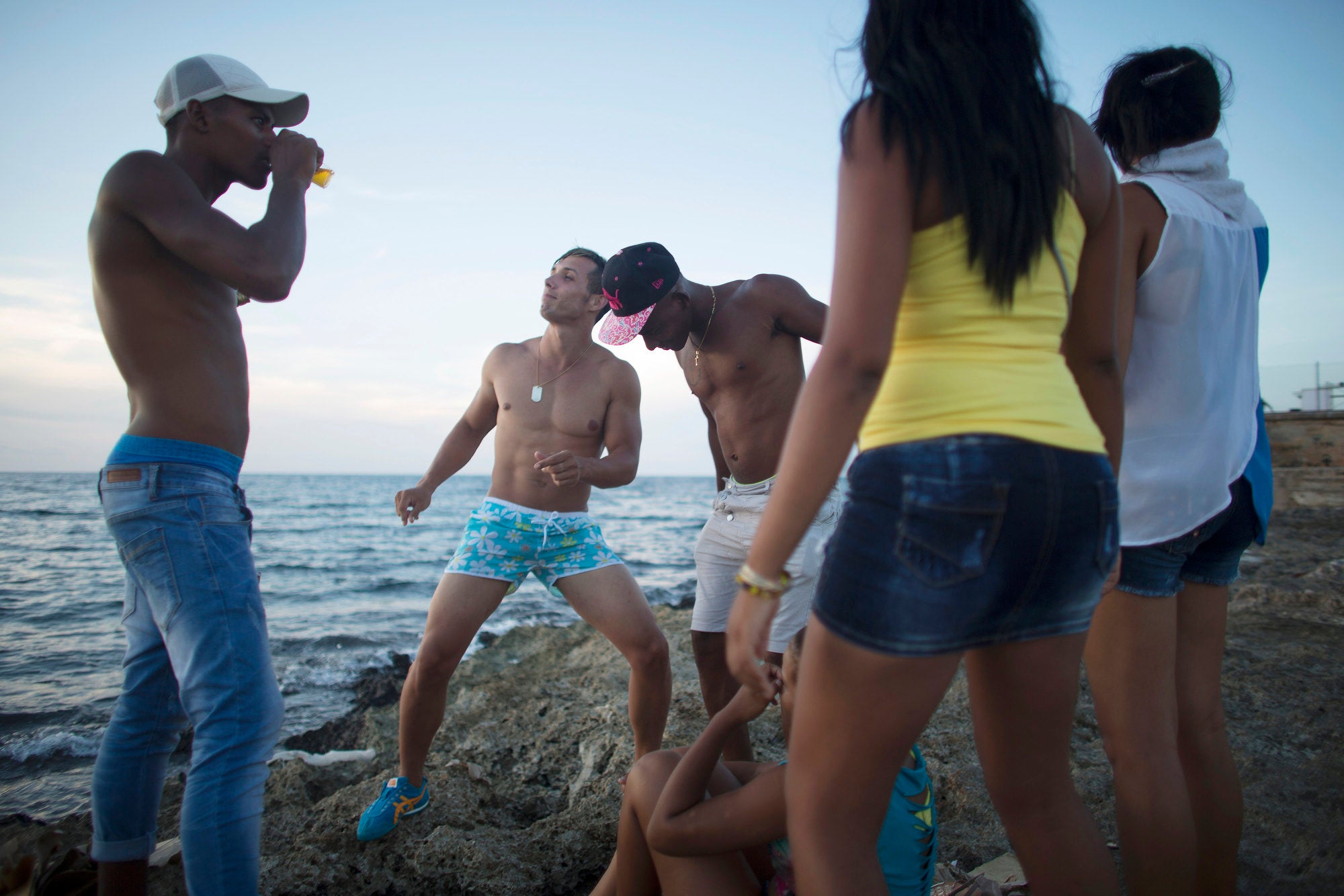ALEXANDRE MENEGHINI: CUBAN CIRCUS

Brazilian photographer Alexandre Meneghini has traveled around the world to capture everyday life. Working for Associated Press for eleven years, in around twenty countries, Alexandre has now turned to capture the everyday life of Cuba, while working for Reuters. This story is about doing something you love for passion rather than for money. The kids of the Cuban Circus are motivated by the excitement and passion to be great circus performers or just, have fun.
Hi Alexandre, how did you get to this story?
I went to a circus looking for a daily life feature, and when I asked where I could find children practicing to become professional, I learned about the circus school. The training in this school involves discipline, motivation, and a lot of practicing.
Does the circus offer a better future for these kids?
I am not sure what you call “a better future”. Is it the possibility of making more money or the possibility of spending your life doing what feel you were born to do? Perhaps both of the futures are just for the lucky ones. Those kids and their parents are not thinking about money. They go to circus school because it’s fun, it’s cool, it’s free and they really enjoy it. If some of them ever become professionals, they will do following their heart. Whether they will make lots money out of it, I don’t know. It is difficult anywhere in the world, but not impossible. And remember, it is Cuba.
Cuba tends to be stereotypically portrayed as an old world or a poverty-stricken country. How was your own perception of the everyday life there?
As you have said, this is a stereotype. In the capitalist sense of poverty, most Cubans make little money, so they are considered poor – I don’t share this vision. They have access to free education, healthcare and a place to live. Cuba is possibly the safest country in Latin America, while only rich people in the capitalist world have these standards of living. Cubans live with little money, but they are not poor.
That’s true, so are these schools self-funded?
A person known as “Kiko” founded this particular school. His idea was to start a place that will give children something to do after school, while to promoting the circus. He possibly receives some money from the state and from the mothers of the children, but he doesn’t make any real profit out of it. Things like that are done by the conviction of creating a better reality for the children in Cuba.
What was the act that most impacted you?
Award winning and experienced professionals who could make fortunes in other parts of the world teaching kids almost for free in Cuba – I have seen this in boxing, baseball and fencing as well.
What’s the trajectory of the circus industry in Cuba?
I don’t really know the trajectory of circus industry in Cuba. What I know is that Fidel Castro’s Revolution benefited artists and sport players. In Brazil, for example, the life of an artist generally is more difficult – this is my perception.
So, how do you think the recent changes in Cuba’s political relationship with the US are going to affect people, like the circus’ kids?
The recent changes in Cuba’s political relationship with the US will affect all Cubans when the economic and financial blockage ends. This is the real change Cubans are waiting for, not a new embassy in Havana.
You have covered different stories around Latin America. What draws you to this area of the world?
Latin America gives you a whole universe of stories and situations that must be shown. This is not exclusive to the region and I have worked in different countries around the world. I just happen to be here now.
And how do you photograph inequality with dignity?
You photograph inequality with dignity when you show respect. For example, don’t step over the tomb of a child just to show his or her mother’s tears from a better angle.
What are you working on now?
I am always doing features about daily life in Cuba. It’s a quick changing society, and I am glad to be here. Right now I am working on a story over an afro-religion in Cuba known as “Santeria”. Since there is a visit of the Pope in the upcoming weeks, this is the perfect timing to show what most Cubans really believe in.
Article By: Laura Rodriguez Castro.
- Tags: Interviews








